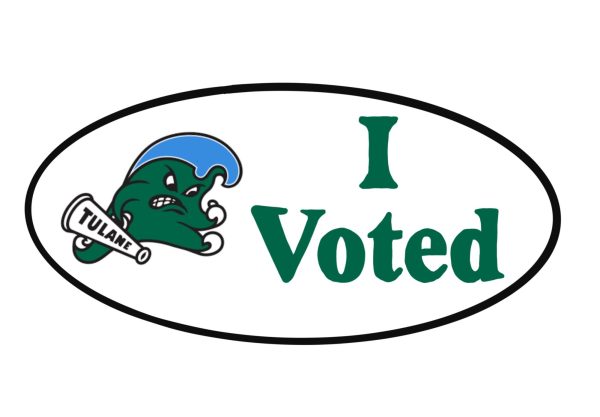
With the 2024 presidential election just around the corner, the deadline to register to vote also approaches. Despite the urgency of the matter, voter registration materials are hard to find at Tulane University due to a new Louisiana law that restricts the holding of voter registration events.
Gov. Jeff Landry signed House Bill 506 into law on Aug. 1. The law imposes stricter requirements for nongovernmental groups to hold voter registration drives and makes it easier to classify certain acts as voter fraud. Individuals or groups seeking to organize a voter registration drive must first register with the secretary of state.
The bill was proposed in response to Landry’s concerns about non-citizens registering to vote, despite United States citizenship already being a federal requirement for voting.
“There has been very little evidence to show that there [are] all these individuals that he would have you think that are voting illegally,” Rosalind Cook, Tulane political science professor and president of the League of Women Voters of New Orleans, said. “So why is he looking for a solution to something… that doesn’t really exist?”
While the law aims at preventing voter fraud, many view it as a voter suppression tactic, raising concerns about the future of voter registration.
“[The Louisiana government] should be for registration, not against. Otherwise, it’s a form of suppression and a violation of freedom of speech and the freedom to assemble,” Scott Nolan, Tulane political science professor, said. “The fact that the law isn’t exceptionally pro-registration and clear about how to do it tells me that they’re not interested in registration. It was written that way by politicians currently in power that like the voters that they have and don’t want new ones.”
By mandating organizations to register with the state before holding voter registration drives, Cook believes the state will be able to approve some groups but not others. She believes there will be potential elements of subjectivity and bias in the approval process.
“I think that they want to control who the organizations are that actually do voter registration,” Cook said.
Many institutions and organizations, such as Tulane, could face harsh consequences, including potential jail time, if they violate the rules.
“The complexity, the lack of detail, is a feature, not a bug,” Nolan said. “It is intended to keep the status quo and to keep the two-party system strong that benefits Democrats and Republicans, and it certainly benefits Republicans who have clear majorities in Louisiana.”
As the president of the League of Women Voters of New Orleans, Cook faced these barriers when applying for her voter registration event.
“If you try to get information from the governor’s office about [the penalties], they don’t reply,” Cook said. “Typically, we’re doing [voter registration events] once a week. Do we have to fill out a form every week? We got no answer.”
Organizations on Louisiana college campuses also must grapple with these new restrictions as the election quickly approaches.
According to Max Perlman, president of Tulane’s chapter of BridgeUSA, a political discussion organization, voter registration was easily accessible in previous elections. This year, student groups were told to hold off on registration events until Tulane’s Student Organization Center can be sure they will be able to effectively help prevent legal complications.
Many college students are eligible to vote for the first time in the 2024 election, so the lack of resources is a concern for groups that want to register new voters.
“There will be several initiatives at the university level to encourage students to register to vote in this November’s presidential election, either here in Louisiana or in their home states,” Mike Strecker, a university spokesman, said in a statement to The Hullabaloo. “These efforts are still in the planning stages as we work to ensure that they comply with voter registration regulations established by the state.”
However, with the election nearing, many are worried that Tulane’s registration materials will not be available in time.
Given Tulane’s reputation as a politically active university, Nolan believes that if students have the resources to register to vote, many will utilize them.
“I expect voter registration at a place like Tulane to be very, very high, and definitely above average compared to other colleges and universities in the country, because our students tend to be very high achievers,” Nolan said.
Ultimately, Nolan hopes the law will not successfully suppress new voters in Louisiana.
“It’s my hope that Tulane, in addition to many other organizations, are reaching out to the governor’s office and Attorney General for immediate, thorough and specific rules and protocols on how to do this well,” Nolan said.


